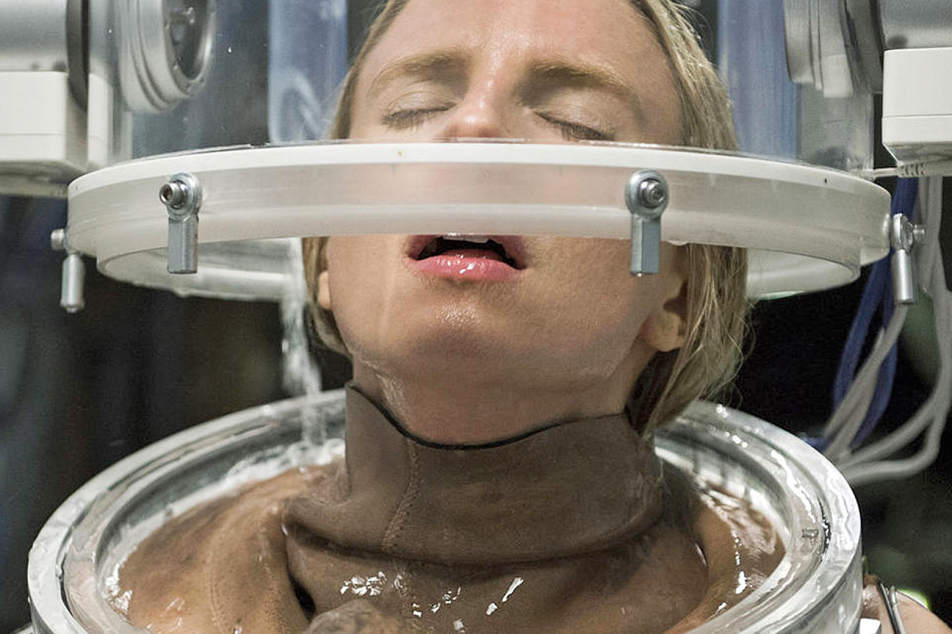 We watched Coming Through the Rye this weekend. It’s about Jamie Schwartz, a teenager at prep school who decides to adapt Catcher in the Rye into a play for his class project. His advisers tell him he needs to get permission from Salinger. So he does a little bit of sleuthing, figures out where the reclusive author probably lives and goes on a road trip with a female companion who’s a little bit in love with him.
We watched Coming Through the Rye this weekend. It’s about Jamie Schwartz, a teenager at prep school who decides to adapt Catcher in the Rye into a play for his class project. His advisers tell him he needs to get permission from Salinger. So he does a little bit of sleuthing, figures out where the reclusive author probably lives and goes on a road trip with a female companion who’s a little bit in love with him.
Though the locals are protective and obstructive, Jamie eventually finds Salinger (Chris Cooper), who refuses to give him permission. More than that, he tells Jamie that he would be stealing from him if he did it. Jamie returns to school (there’s a lot more to the story than that), and reports his findings, at which point the advisers tell him to go ahead and stage the play anyway. “No one’s going to make any money from it,” they say, uttering the false justification many copyright violators use. “And he’s never going to find out.”
At which point, I could only shake my head. First of all, if they didn’t have any respect for Salinger’s copyright, why did they bother sending the boy on this difficult mission to obtain permission? And then, given that Jamie held Salinger in such high esteem, how could he not refuse his advisers by telling them what Salinger had told him…that to do so would be stealing? The film was generally good, but that element ruined it for me, I’m afraid.
To cleanse our palate, we watched a few Christmas specials. I’ve heard of Pentatonix, but haven’t seen them, so we saw their special. They remind me a lot of The Nylons, the Canadian a capella group that was popular in the eighties. This was followed by Amy Grant’s special. The next night we watched the Mormon Tabernacle Choir’s show, which ended with a retelling of the events surrounding the creation and early performances of Handel’s Messiah. I’d heard some of the details before, but having it interspersed with the performance was nice.
I binge-watched Goliath, the Amazon series starring Billy Bob Thornton that I mentioned last time. It’s quite good. Very Grisham-esque. Some of the characters are overly quirky, a David E. Kelley trope, but Thornton plays it straight and the show wouldn’t be much without him. Funny, though: I thought there were 10 episodes, but mid-way through the eighth it seemed like they were starting to wrap things up, and indeed they were. Caught me a bit by surprise.
The promo trailer for Netflix’s The OA intrigued me, and I was familiar with Brit Marling from the series Babylon where she plays an American hired as a publicist for the London Metropolitan Police. It was an oddball show, half camp-half drama, but I liked it. Sometimes I feel like I’m the only person who saw it.
The premise of The OA seemed interesting, too. A young woman who has been missing for seven years shows up under mysterious circumstances. When she vanished, she was blind; now she can see, but has strange scars on her back and is somewhat unstable emotionally.
The first indication that something weird was going on with the show (not the story) was when the “opening” credits started crawling at the 50 minute mark of the first episode (out of 70 minutes). It made what came before feel like the longest “cold open” in television history. And, in fact, it was, because at that point the show changes radically, and it turns into (mostly) a narrated flashback of the main character’s life. Wow, did that rob the story of any dramatic impact. It becomes tedious to listen to someone telling you what you’re seeing (in abbreviated fashion) on the screen. Apparently it’s all about the benefits of having near death experiences, but by the mid-point of the second episode I was starting to have a near-death experience of my own, so I bailed. I don’t quit shows easily, but I couldn’t imagine going through several more hours of that. And apparently that’s what the remaining episodes were: more of the same, until an unearned shocking event in the final minutes.

